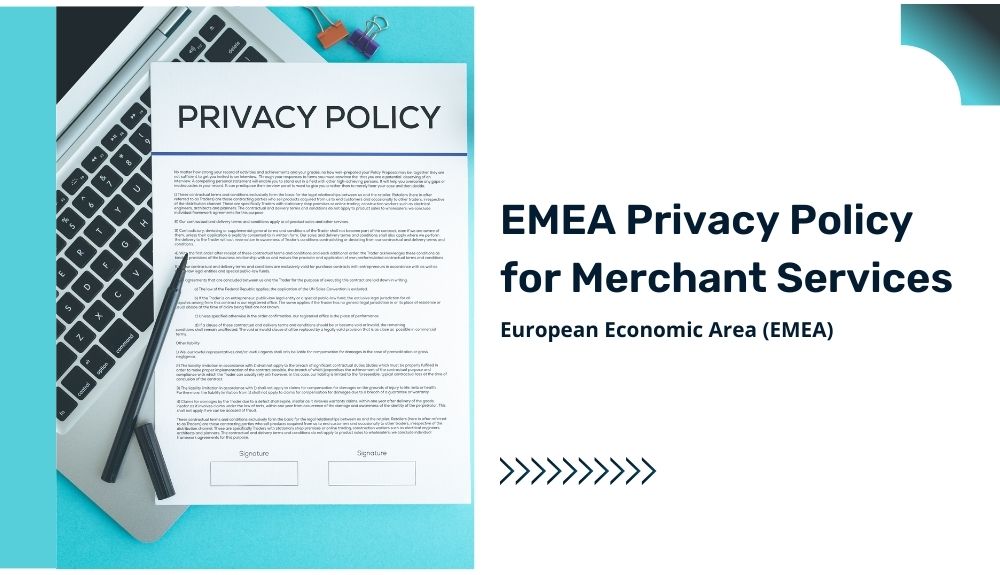Ways That Your Can Build Long Term Relationships With Customers
Customer loyalty refers to the likelihood that a customer will continue to purchase products or services from a particular company or brand. This can be affected by things like how good the product or service is, how good the customer service is, and how happy the customer is overall. Companies often use loyalty programs, like memberships or rewards programs, to keep customers loyal to their brand.
Customer loyalty is essential to a business because it can lead to repeat customers and increased revenue. Excellent customer loyalty as a company builds customer loyalty with sales because of the repeat purchases of your products and services.
Repeat customers are crucial because they are more likely to buy more, tell their friends and family, and spread good word of mouth about your business. Additionally, loyal customers are often more forgiving of minor mistakes or issues and are likely to continue doing business with a company even during difficult times.
A business can also benefit from loyal customers by using their feedback to improve its products and services. Read further to learn how to build customer loyalty.
Benefits of Building Customer Loyalty
There are several key advantages to building long-term customer loyalty for a business, which are:
Repeat business
Loyal customers will make repeat purchases, providing a steady revenue stream for the company. Repeat business also helps companies to reduce their marketing costs, as they don’t have to spend as much money on acquiring new customers.
This can free up resources that can be used to improve products or services, expand the business, or invest in other growth strategies. So building customer loyalty with sales that are repeated over time is excellent for any business that wants to expand its brand.
Increased revenue
Loyal customers spend more money over time as they are more likely to purchase additional products and services.
Cost savings
Getting new customers can be expensive, so keeping the ones you already have can save a business a lot of money. In contrast, keeping the customers, you already have can save a company a lot of money.
Additionally, loyal customers are likely to be forgiving of mistakes and are less likely to demand discounts or refunds. This can help to reduce the costs associated with customer complaints and returns.
Also, loyal customers tend to provide valuable feedback and suggestions for improvements, which can help a business identify and address issues early on, further reducing costs.
Positive word-of-mouth
Happy customers want to tell their friends and family about a business, which is a valuable form of word-of-mouth marketing. This can be a powerful way to drive new business and attract potential customers.
Satisfied customers will become advocates for a company and promote it to others. You can achieve this through social media, online reviews, and personal recommendations.
Positive word-of-mouth can be a more effective form of marketing than traditional advertising, as it carries more weight when it comes from a trusted friend or family member.
Happy customers will tell their friends and family about a business, which is a valuable form of word-of-mouth marketing. This can help to drive new business and attract potential customers, boost the company’s reputation and attract new customers.
Valuable feedback
Loyal customers can provide valuable feedback on products and services, which you can use to improve the customer experience and drive innovation. This can help a business to identify areas for improvement and make changes that will better meet the needs of its customers.
Gathering customer feedback can be done with the following approaches: surveys, social media analytics, and customer feedback. You can use the feedback to identify patterns and trends, which can help a business to understand what is working well and what needs to be improved.
Brand Advocacy
Happy customers may turn into brand advocates who actively promote the brand to others, which further helps attract new customers. Brand advocates are customers who are so satisfied with a company’s products or services that they are willing to recommend them to others.
They can help to spread the word about a business to a broader audience, which can drive more sales and increase brand awareness.
Brand advocacy can also help to build trust and credibility with potential customers. When someone sees that a friend or family member has had a positive experience with a business, they are more likely to trust that business themselves.
Greater customer lifetime value
Building long customer relationships means that the customer stays with a business, the more money they will likely spend over time, thus increasing the overall customer lifetime value. Customer lifetime value (CLV) forecasts the net profit due to a consumer’s future relationship.
CLV is calculated by multiplying the customer’s average purchase value by the number of purchases made per year and by the average retention time (in years). By improving customer relationships, businesses can increase the retention time of their customers, which in turn leads to greater CLV.
For example, a customer loyal to a business and staying with that business for several years is likely to spend more money over time than a customer who only makes one purchase and never returns. This is why companies put efforts into building great customer relationships. By retaining customers over time, businesses can increase each customer’s overall value, which can significantly impact the bottom line.
How to Build Customer Loyalty
How to Develop Excellent Customer Relationships in Specific Steps
Building customer relationships can be a multi-step process, but some key strategies include the following:
Providing excellent customer service
Having excellent customer service means building long customer relationships. Customers will want to remain loyal to a company if they feel valued and well-cared for. It includes promptly addressing customer complaints, being available for support, and going above and beyond to meet customer needs.
Customers will remain loyal to a company if they feel valued and well-cared for and know that the company is committed to meeting their needs and addressing any issues they may have.
Promptly addressing customer complaints is essential for maintaining customer satisfaction and loyalty. This includes actively listening to customers, understanding their concerns, and working to quickly and effectively resolve any issues that may arise.
Being available for support is essential. It can include multiple channels for customers to reach out for help, such as email, phone, chat, or social media. This allows customers to reach out for use at their convenience and helps ensure that their needs are met promptly.
Going above and beyond to meet customer needs is also important. This can include things like providing personalized recommendations, offering discounts or incentives, and going out of the way to help customers. Doing this shows customers that the company is dedicated to their satisfaction and that they are valued.
This means that the company should anticipate customers’ needs and proactively work to address them before they become issues. For example, sending out reminders or follow-up emails or providing helpful resources and tools.
Delivering high-quality products or services
Customers will want to remain loyal to a company if they are satisfied with the products or services they receive. This includes high-quality products, providing accurate product information, and standing behind the products or services offered.
A company must ensure that its products or services meet the customer’s expectations and are of high quality. Sourcing quality materials and manufacturing processes and performing quality control measures can achieve this.
Additionally, providing accurate product information can help customers make informed purchasing decisions and trust that they are getting what they paid for.
Standing behind the products or services offered is crucial. This can include offering a warranty or guarantee and providing excellent customer service to address any issues that may arise. It can show customers that the company is committed to their satisfaction and willingness to take responsibility for any problems.
You should note that quality refers to the physical product or service and the overall customer experience, including the purchase process, delivery, customer service, and post-sales support. Companies should strive to deliver quality in all aspects of the customer experience.
Building personal connections
Customers will likely remain loyal to a company if they feel a personal connection to the brand. This can include recognizing and addressing customers by name, remembering their preferences, and providing personalized offers or promotions.
For instance, recognizing and addressing customers by name can generate a sense of personalization by making them feel noticed and heard. Knowing customers’ preferences and past purchases can also create customized offers or promotions that are more relevant and appealing to customers, boosting the likelihood that they will make a purchase.
It is also crucial to remember that personal relationships are not restricted to in-person contacts but may also be accomplished through personalized digital experiences, such as targeted marketing, personalized suggestions, and customized content.
Additionally, providing exceptional customer service is essential to establishing personal relationships with clients. Businesses may create a great experience that builds client loyalty by going above and beyond to satisfy customers’ demands and handle any difficulties they may have.
In the long run, a higher customer loyalty rate and repeat purchases might result from developing meaningful relationships with your clientele.
Offering rewards or incentives
Customers are more likely t remain loyal to a company if they feel they are getting good value for their money. For example, loyalty programs, rewards programs, or special promotions for repeat customers.
Loyalty programs, for example, can be used to reward customers for repeat business or for reaching certain milestones, such as a higher number of sales. These programs can include things like discounts, special promotions, or exclusive access to products or services.
On the other hand, you can use reward programs to get people to do things like tell their friends or leave reviews. By giving customers rewards for doing these things, businesses can get customers to tell other people about their good experiences and get more business.
Special repeat customer promotions can include discounts, freebies, or early access to new products or services. These can help show customers they are valued and appreciated and encourage them to continue doing business with a company.
When making a rewards or incentive program, it’s essential to keep in mind that it should be tailored to fit the preferences and habits of your target customers. It should also be communicated and marketed to make it visible and appealing to them.
By giving customers rewards or incentives, you can give them a tangible benefit for their loyalty, which can help bring them back and keep them as customers.
Continuously improving
Customers are more likely to remain loyal to a constantly improving and innovating company. This can include gathering customer feedback, staying up-to-date with industry trends, and making changes to improve the overall customer experience. Continuously improving is a crucial aspect of building customer relationships.
By gathering customer feedback, businesses can identify areas for improvement and make changes to the products, services, or overall customer experience.
It can show customers that the business values their opinions and is committed to meeting their needs. Additionally, staying up-to-date with industry trends can help companies to remain competitive and offer customers the latest products, services, and technologies.
You should remember that continuously improving doesn’t just mean fixing problems. It also means using customer feedback to develop new and innovative ideas that will make customers happy and give them a unique and different experience.
Additionally, it’s essential to be transparent and communicate changes to customers, so they understand why specific changes are being made and how they will benefit from them. This can help to build trust and show customers that the business is dedicated to improving the customer experience.
Overall, improving and coming up with new ideas show that a business is committed to giving customers the best experience possible, which can make customers more loyal and bring them back.
Communicate regularly
Keep in touch with your customers regularly, whether through email, social media, or other channels, to keep them informed about new products, services, and promotions, as well as to gather feedback on their experiences with your business.
Regular communication with customers is essential for building and maintaining customer loyalty. By keeping in touch with customers through email, social media, or other channels, businesses can keep customers informed about new products and services, promotions, and any additional relevant information. It can help keep customers engaged with the brand and encourage repeat business.
Also, regular communication gives businesses a chance to hear from customers about their experiences, which you can use to find ways to improve the customer experience. It’s important to note that when communicating with customers, you should avoid being too pushy or spammy. This can be off-putting for customers and lead to their opting out of communications. Instead, you should strike a balance and find the right frequency and tone for your audience.
Give customers what they want and let them choose how often they want to hear from you. Additionally, a customer service strategy that includes regular check-ins, surveys, or other feedback forms can help businesses identify customer needs and preferences and make adjustments to improve the overall customer experience.
Keeping promises
Building trust with customers is critical for building long customer relationships, which means keeping the promises you make to them. Keeping promises is crucial to building trust with customers and establishing a good relationship with them.
When a business makes a promise to a customer, whether it’s about the quality of a product or service, delivery times, or any other aspect of the customer experience, it is critical to deliver on that promise to maintain the customer’s trust.
When customers trust a business, they are likelier to remain loyal and recommend the company to others.
On the other hand, breaking promises can hurt customer relationships, leading to lousy word-of-mouth and less loyalty. Businesses need to be transparent and honest about what they can and cannot deliver rather than making unrealistic promises.
If for some reason, you can’t keep a commitment, it’s important to communicate it and find a solution that will meet the customer’s needs or provide compensation if necessary.
Conclusion
Knowing how to build customer loyalty for your business is essential to growing and maintaining the image of the brand you represent. Developing great customer relationships is crucial for organizations because it can result in repeat sales, good word-of-mouth referrals, and higher income.
To build long customer relationships, companies can take several steps, such as keeping promises, communicating regularly, continuously improving, offering rewards or incentives, building personal connections, delivering high-quality products or services, and providing excellent customer service.
By applying these techniques, businesses can create a pleasant customer experience that results in customer satisfaction and loyalty. This, in turn, can contribute to the business’s long-term success.











